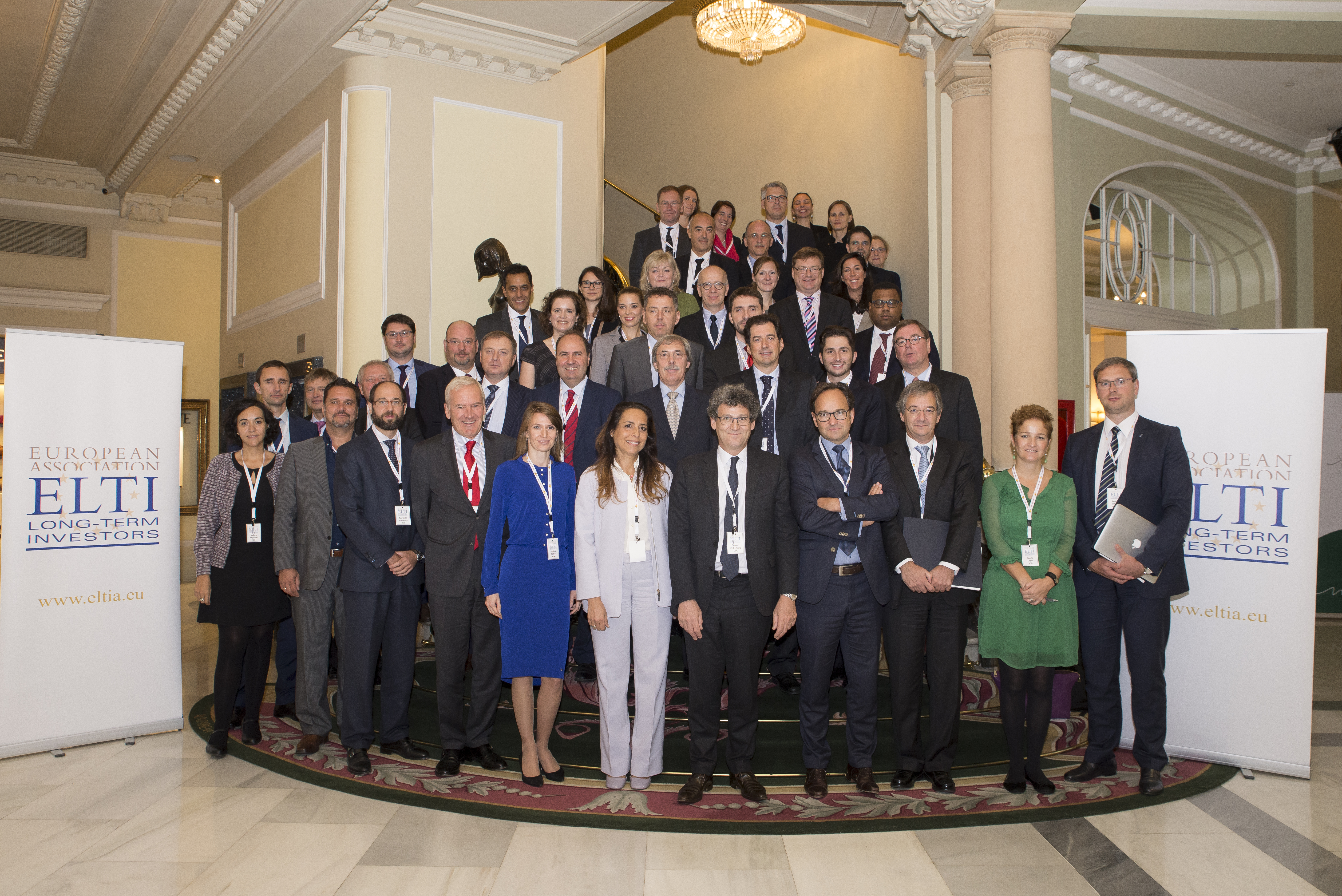Agenda
The 4th annual ELTI General Assembly took place on 28 October 2016 in Madrid, Spain, courtesy of the Instituto de Crédito Oficial (ICO)
About Us
The Malta Development Bank (MDB) was established on 24 November 2017 when the Malta Development Bank Act, 2017 came into force (Act No XXI of 2017 – CAP 574). It commenced operations on 11 December 2017 when the Board of Directors was appointed and held its first meeting. The MDB is fully owned by the Government of Malta.
Mission of the MDB
The MDB shall contribute towards sustainable economic development that benefits the Maltese people in line with public policy objectives by:
- promoting inclusive and environmentally sustainable economic growth
- supporting infrastructure development
- linking entrepreneurship, investment and economic growth to improved living conditions, a higher quality of life, and better social inclusion.
Strategic Objective
The MDB’s strategic objective is to offer financing facilities that support productive and viable operations where the market is unable or unwilling to accommodate such activities on its own in whole or part.
The MDB’s activities focus on complementing and supplementing the operations of market players in the provision of financing facilities, particularly to SMEs, infrastructure projects that contribute to national or regional development, and projects which are socially-oriented, energy efficient and environment friendly.
Remit of activities
The MDB performs a promotional role in line with public policy. The MDB’s remit of activities covers a wide range of possible operations where there is evidence of market failure. In general terms, the MDB is engaged in the following priority areas:
- Private Sector Development, in particular financing the private sector through innovative financing, credit enhancement, venture capital, advisory function;
- Skills and Technology, in particular sustaining competitiveness by investment in innovation, skills, knowledge-generation and technology;
- Infrastructure development of regional or national importance;
- Green Economy, in particular supporting clean energy and energy efficiency projects, sustainable transport, and water resources;
- Community Services, in particular supporting social enterprises operating community services in such sectors as education, health and housing.
Government Guarantee to MDB
In terms of article 5 of the Malta Development Bank Act, the Government shall guarantee up to 100% of all obligations of the MDB and up to 100% of the loans, facilities or guarantees issued by the Bank. The Government guarantee is unconditional and irrevocable.
Article 5(1) provides that the Government shall enter into a Memorandum of Understanding with the MDB to set the maximum limit of Government guarantees to the MDB. This limit shall be expressed in terms of euro and/or percentage of assets/liabilities. This amount will be reviewed on an annual basis in the light of the evolving growth of the MDB’s business.
Financing Facilities
In general, the MDB will be offering five main types of facilities:
- Loans
- Guarantees
- Equity participations
- Underwriting
- Advisory services
The MDB is currently engaged in a consultation process with stakeholders with a view to:
- Identifying gaps in the financing of viable and productive initiatives
- Exploring financing opportunities with financial intermediaries and other stakeholders
- Developing financial instruments to improve access to financing,particularly for SMEs and infrastructure projects
- Supporting socio-economic objectives in the public interest.
All requests for MDB financing must be bankable projects, that is, viable projects that have satisfactory revenue-generating potential. All loan applications have to be assessed according to sound banking principles.
Promotional Schemes through Intermediaries
The MDB’s financing operations consist mainly of facilities extended through intermediaries, mainly credit institutions - the so-called second-tier operations. These financial intermediaries are responsible for the client due diligence process and project appraisal. They select and assess loan applications of end-customers under promotional financing schemespre-agreed with the MDB.
This process ensures the non-competitive nature of the relationship between the MDB and the intermediary banks and also enables the MDB to assume a leaner structure, thereby fulfilling its public policy role in a more cost-effective manner.
The MDB will be offering Schemes catering for clients who cannot otherwise be accommodated by financial institutions in spite of having feasible or socially desirable projects.
These Schemes are specifically designed for:
- SMEs particularly those involving innovation, digitalisation, and enhancement of competitiveness.
- Socially-oriented initiatives particularly those involving knowledge generation, education, health, and social inclusion,
- Energy efficient initiatives
Infrastructure
The MDB is also engaged in direct lending and in co-financing with other banks and financial institutions – the so-calledfirst-tier operations.These financing operations are normally directed to:
- Physical infrastructure projects by the Government or Public-Private Partnerships
- Social infrastructure particularly projects associated to health, education, social housing, long term care centres and other initiatives whose social returns may not be fully internalized by private investors.
- Acting as a catalyst to promote domestic syndicated lending by crowding in a group of local banks to facilitate larger scale investment projects.
Nature of financing operations
The MDB’s financingoperations may be on:
- State-aided
- Non-aided (market) terms.
More specifically, the MDB’s activities include the provision of:
(a) aided financing authorised under:
(i) the General Block Exemption Regulation,
(ii) approved aid schemes,
(iii) approved aid under specific Guidelines issued by the European Commission; and
(iv) EU financial instruments funded from EU Funds, where the Bank will act as a vehicle to channel and manage EU funds, or as co-investor;
(b) aid that fulfils the conditions of the deminimis Regulation at the level of the final beneficiaries;
(c) financing on market terms to eligible final beneficiaries covered by the General Block Exemption Regulation, where all the conditions of the relevant articles of the General Block Exemption Regulation are complied with, except the requirements relating to aid intensities or maximum aid amounts, subject that in the case of infrastructure projects participation by private investors shall be at least 50%paripassu with the Bank;
(d) financing of participation in EU financial instruments on market terms;
(e) such other financing subject to prior approval by the European Commission.
